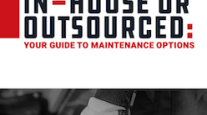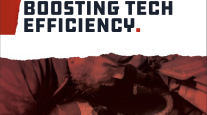Senior Reporter
Equipment Makers Set Up First ‘Fly-In’ With Washington Policymakers
The rare opportunity of reforming the federal corporate tax code and ensuring long-term funding for freight infrastructure in the coming months prompted the Association of Equipment Manufacturers to recently schedule its own meetings on Capitol Hill and the White House.
The event marked the association’s first stand-alone “fly-in” in the modern era, which featured about 50 of the group’s members from more than two dozen companies visiting 100 congressional offices during the week of Sept. 11. The group was founded more than a century ago.

In past years, AEM joined other groups for large advocacy campaigns on Capitol Hill. But, after a long, hard look at the association’s economic footprint, such as supporting 1.3 billion jobs nationwide, coupled with the possibility of legislative action on policy priorities, the moment appeared ideal to set up the stand-alone “fly-in,” AEM Vice President Kip Eideberg told Transport Topics.
“We thought we probably should have our own ‘fly-in’ to raise the profile of our industry and advocate for our issues,” Eideberg said.
The inaugural “fly-in” consisted of face time with nearly 45 lawmakers, followed by a meeting at the White House with D.J. Gribbin, who is infrastructure policy adviser for President Donald Trump.

Slater
“We are thrilled by the remarkable success of our first-ever stand-alone fly-in,” AEM President Dennis Slater said in a statement, adding that the week “offered a chance for AEM to firmly plant its flag in Washington and continue to expand our industry’s advocacy efforts here in D.C.”
When it comes to funding infrastructure, Eideberg said the group supports myriad approaches, acknowledging not every proposal would benefit every region of the country. For instance, tolling would not be suitable for rural areas.
“Anything that works and it’s going to help address the insolvency of the Highway Trust Fund, get money out to project sites rebuilding our infrastructure, whether that’s a user fee of some sort, a gas tax, [public-private partnerships], combination of state and local [and] federal dollars, asset recycling — all of that, because all will help accomplish the same thing, which is greater investment in infrastructure,” Eideberg explained.
Before taking on infrastructure funding, policymakers stressed to the group they first plan on the reforming the tax code.
“We’ve been pushing for tax reform every opportunity we can, and we’ll continue to do so, and this timeline looks great on paper. We certainly would support tax reform getting done this year,” Eideberg added.
Reforms to the tax code that would lower the corporate rate to 15% would boost employment and prompt companies to shift their profits held overseas to accounts back in the United States, Trump has said. The tax rate for large businesses is 35%.
On infrastructure, Transportation Secretary Elaine Chao said a 10-year, $1 trillion infrastructure plan would be revealed to Congress by the end of the year. A blueprint proposes using $200 billion from federal accounts to leverage $800 billion in private capital.
The Wisconsin-based Association of Equipment Manufacturers consists of 900 members representing 200 product lines.
The Highway Trust Fund’s funding authority expires in about three years. Revenue from the federal diesel tax of 24.4 cents per gallon and the 18.4-cents-per-gallon gas tax is insufficient to ensure the fund’s solvency.




